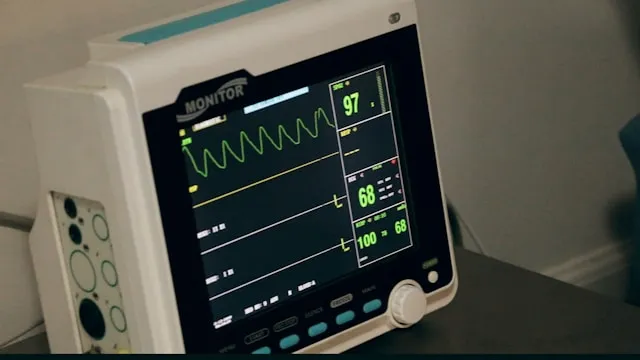A recent study reveals that loneliness, which was previously linked to a compromised immune system and premature death, can increase the risk of a stroke or coronary artery disease by a staggering 30%. While factors causing health ailments seem to keep adding on, it is the duty of every heart patient to take extra care of themselves. When an experienced cardiologist or cardiac surgeon diagnoses a patient with a cardiac problem, the patient should be equipped to understand his disease and what he can do to treat it. One of the most common procedures advised for cardiac problems includes Angioplasty. Coronary Angioplasty Procedure is done when the patient is diagnosed with a heart blockage. Most common symptoms of heart blockage include shortness of breath and chest pain. It is important for a patient to understand how the procedure works and should feel free to ask the surgeon any questions he/she may have. According to Dr. Praveen Chandra - one of the best cardiologists in India from Medanta Hospital Gurgaon, here are some important questions one should ask their cardiologist before angioplasty:
Why are you recommending angioplasty for me?
For the doctor, every patient brings a unique case and is treated differently from the other. In some cases, a doctor rules out angioplasty and recommends an open heart surgery while the opposite may happen other cases. A patient needs to ask his/her doctor the reason behind his decision to opt for one treatment over the other. A patient should keep in mind the following factors that contribute to the doctor's final decision on the treatment-
- How bad is the heart problem, emergency nature of the condition?
- Are other diseases like diabetes making the case worse?
The patient needs to make sure that his doctor knows the complete medical history.
Could Bypass Surgery (CABG) be a better option?
During a Heart Bypass Surgery, the blockage is bypassed using an alternate channel of blood supply- a graft; while in an angioplasty, the clogged arteries are widened with the help of stents. Each patient is different and the chosen course of treatment would depend on the following factors:
- Extent of blockage
- Type of Blockage
- Diabetes
- Size of blockage
- Prevalence of other diseases like COPD, Stroke, functional status, mental state, compliance etc.
- Age
What kind of stents will you use?
While all stents essentially provide the same purpose to unblock a narrow artery, there is still a choice to make - drug-eluting stent or a bare-metal stent. A patient should check with his doctor on the kind of stent available for his treatment. Different stent comes with different medications. For instance, with bare-metal stents, patients are usually required to take a combination of clot-preventing drug and aspirin. This is taken for a period of 4 to 6 weeks after getting the stent. On the other hand, drug-eluting stents are needed to be taken by the patient for at least 12 months. The upside of getting drug-eluting stent is the reduction in the risk of re-narrowing by up to 20% while in the case of bare-metal stents, the reduction of risk is only up to 8%. With newer generation stents, the stent thrombosis rate is <1% per year.
How long will I need to take the medication and would I need to adjust other medications?
Some medication has to be taken lifelong and depends on patients underlying morbidities. Most important is not to discontinue any medicine without counseling. Also, some medicines need to be adjusted according to the renal status of the patient and other drugs prescribed. According to every patient's medical history, the doctor prescribes medication that suits the patient. For example, diabetics that take metformin may need to change their medication as per their doctor's suggestions.
Is there a need to limit my activities?
Again, the answer to this question depends on a lot of factors. Cardiologists emphasize the importance of limiting activities, not due to the stent itself, but due to the combination of diseases, a patient may be going through. However, in most cases of Coronary Angioplasty, patients are usually discharged after 2 days of surgery. They are advised to start walking a day after the surgery and resume normal activities after a week. Other post-procedure instructions would be related to diet, exercise, medicine, smoking and alcohol consumption.
Is there anything I need to know about follow-up consultation?
It depends upon the nature of the procedure and other patient-related factors. It varies from physician to physician. But most important is to have frequent visits to the treating cardiologist as advised.
What are the signs and symptoms a patient should be aware of post-angioplasty? What to do in case of an emergency?
If post angioplasty patient develops symptoms like chest pain heaviness, epigastric pain arm discomfort, breathlessness, sweating, palpitation, this should not be ignored and immediate doctors consultation is warranted. The patient can self-administer sublingual Sorbitrate 5mg after checking the blood pressure and reach a hospital immediately. Check out our list of best cardiologists in Chennai.
Get Estimated Cost of Coronary Angioplasty in India from top Hospitals - FREE
 The article was reviewed by Dr. Praveen Chandra Dr. Praveen Chandra is a leading Cardiologist and Chairman of Interventional Cardiology at Medanta - The Medicity, Gurgaon, India. He is recognized as one of the leaders in the country and is proficient in a lot of new devices and technologies. He has been awarded for success and achievement in the field of Coronary Angioplasty in India in 1998. Book Priority Appointment with Dr. Praveen Chandra - Only on Credihealth
The article was reviewed by Dr. Praveen Chandra Dr. Praveen Chandra is a leading Cardiologist and Chairman of Interventional Cardiology at Medanta - The Medicity, Gurgaon, India. He is recognized as one of the leaders in the country and is proficient in a lot of new devices and technologies. He has been awarded for success and achievement in the field of Coronary Angioplasty in India in 1998. Book Priority Appointment with Dr. Praveen Chandra - Only on Credihealth

Reviewed by







